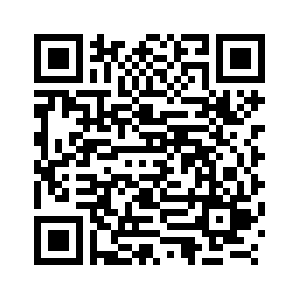BEIJING, Feb. 14 (Xinhua) -- U.S. President Joe Biden and Russian President Vladimir Putin held a telephone conversation Saturday over the situation in Ukraine. However, the direct engagement between the two sides appears to have yielded little substantial progress.
In recent days, the United States has hyped up tensions between Russia and Ukraine and stoked fears of a Russian "invasion."
"As we've said before, we are in the window when an invasion could begin at any time should Vladimir Putin decide to order it," U.S. National Security Advisor Jake Sullivan said Friday, while refusing to "comment on the details of our intelligence information."
Moscow has denied the accusation, saying that Russia has the right to mobilize troops within its borders to defend its territory as NATO's activities constitute a threat to Russia's border security.
Despite Russia's key security concerns, the White House has repeatedly warned Putin's government of severe economic sanctions if it were to invade Ukraine and has claimed that the United States remains prepared to engage in diplomacy in full coordination with U.S. allies and partners while remaining equally prepared for other scenarios.
The U.S. State Department on Saturday ordered most of its staff at the embassy in Ukraine to evacuate, suspending regular consular services.
In an updated travel advisory posted on the embassy website, the State Department said it "ordered the departure of most U.S. direct hire employees from Embassy Kyiv due to the continued threat of Russian military action."
Also citing "increased threats of Russian military action," the U.S. State Department on Thursday urged Americans currently in Ukraine to immediately leave the country.
Earlier this month, the U.S. Defense Department announced it would deploy additional troops to Europe.
The deployment includes 1,000 troops currently based in Germany to be repositioned to Romania and another 2,000 troops sent from the United States to Germany and Poland, John Kirby, the Defense Department's spokesman, said during a press conference at the Pentagon.
As the United States spares no effort to ratchet up tensions on the Russia-Ukraine border, intensive diplomatic efforts by European countries are underway, exposing the split between Washington and its European allies.
Last week, French President Emmanuel Macron held an hours-long discussion with Putin over the Ukraine crisis.
After their talks, Macron said that his Russian counterpart assured "his desire to maintain the stability and territorial integrity of Ukraine."
Following his visit to Russia, the French president visited Ukraine. After his talks with Ukrainian President Volodymyr Zelensky in Kiev, Macron told a joint press conference that France would continue working with Germany to mediate the crisis.
On Tuesday, Macron met with German Chancellor Olaf Scholz in Berlin. At a joint press conference, the French president reaffirmed that pursuing dialogue with Russia is "the only path that will make peace possible in Ukraine."
Scholz emphasized "the maintenance of peace must intervene through diplomacy." The chancellor is scheduled to visit Kiev and Moscow this week.
Analysts said that the current U.S. administration has reasons to keep fueling the already-strained Russia-Ukraine tensions. One reason is to divert attention away from pressing matters at home; the other is to revive its influence over Europe by uniting its European allies against Russia. But for Europe, the impact of a military conflict is unfathomable.
"The (Biden administration's) goal has been to offer Putin a path out of the crisis, while promising him more of what he hates -- NATO forces near his borders, strategic pressure exerted by Russia's enemies -- if he declines to take it," Hal Brands, a professor at the Johns Hopkins School of Advanced International Studies, wrote in an opinion piece carried by Bloomberg on Friday.
If a war breaks out, "we could see a high-intensity, extremely bloody war of the sort most Europeans thought had been consigned to a distant past. It could cause massive refugee flows and spiking military tensions that would further destabilize the continent," read the article.
In a recent article published by Politico, Alexander Dynkin, assistant to former Russian Prime Minister Yevgeny Primakov, and Thomas Graham, senior director for Russia on the National Security Council staff during the George W. Bush administration, expressed their opinions on the Russia-Ukraine situation.
"The United States will be reluctant to revise a European order that has served its interests extraordinarily well for the past three decades. Absent significant adjustments, however, intermittent crises such as the current standoff are inevitable," they pointed out.
"A lasting peace requires that Russia's interests be accommodated so that it has a stake in that order," the two former senior policymakers said. ■



